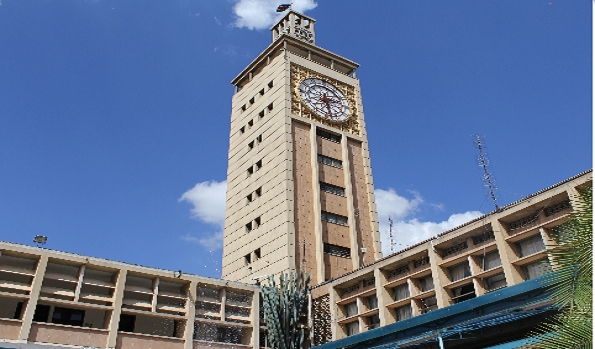The Process Of A Bill Becoming A Law In Kenya

BY ESTHER MUTURI
The process of a bill becoming a law in Kenya is long and complicated because of the stages it has to undergo - it can take months or even years for a Bill to make its way through the legislative process.
However, the processes are very important in ensuring that laws are carefully considered and debated before they are enacted.
A Bill Is a proposal for a new, or a proposal to change existing, law presented for debate before Parliament a perfect example is the contentious Finance Bill 2023 which is set for the second reading on Wednesday.
The process of a bill becoming a law in Kenya is as follows:
First Reading
A first reading is when a bill is introduced to a legislature. Typically, the bill is assigned a tracking number and immediately assigned to the relevant Departmental Committee of the House for consideration.
The Committee scrutinizes the Bill by calling in the sponsor of the Bill, inviting various stakeholders, and later compiles a report to the House with any specific proposed amendments that the Committee of the Whole House considers later.
Second Reading
A second reading is the stage of the legislative process where a draft of a bill is read a second time.
Members of Parliament debate the main purpose and principles of the Bill while seated in plenary. The member responsible for the Bill opens the debate for a second reading by setting out the case for the Bill and outlining its provisions, while a member seconds it. A Bill that is not seconded is withdrawn.
The discussion covers all aspects of the Bill, including its goals, principles, and how its passage will affect the general public.
Committee Stage
The stage takes place through the Committee of the Whole House. The committee stage entails a careful (line-by-line) study of Bill's many parts (clauses) and voting by members of the Committee on each modification.
The Committee of the Whole House consists of all members of the House seated in the form of a committee, who the Deputy Speaker or any member of the Chairpersons’ panel presides.
The Committee decides whether each clause of the Bill should remain in it. Every clause in the Bill is agreed to, changed, or removed.
Report Stage
This stage takes place in the Chamber of Parliament during plenary sitting. The House only discusses amendments during this stage.
The House receives a report and votes on it following a procedural Motion. At this stage, any Member may, with reasons, also move the House to resolve itself into a Committee again to reconsider any specified clauses of the Bill. This is known as re-committal.
The amendments may change what is in the bill already or may involve new provisions being added.
Third Reading
A third reading is the stage of a legislative process in which a bill is read with all amendments and given final approval by the legislative body.
In legislatures whose procedures are based on those of the Westminster system, the third reading occurs after the bill has been amended by the designated committee.
The tidying up of a bill (drafting amendments and re-numbering of clauses) ensures the eventual law is practical and workable (without loopholes).
Presidential Assent
The granting of Presidential Assent is the formal method by which the head of the Executive arm of government completes the legislative process by formally assenting or giving his consent to an Act of Parliament.
If the President assents to a Bill, it becomes law and an Act of Parliament (a law passed by Parliament to create a new law or amend an existing law).
Commencement
Quite often, an Act of Parliament may provide that it will come into effect on a date to be notified.
In such cases, after the Act has received Presidential Assent, notification of the date of its coming into effect is given through a legal notice usually by the Minister for the time being in charge of the matters with which the Act
Tags: Law Finance Bill President William Ruto Bill
Related
Share this article
Experienced and versatile writer, dedicated to using my exceptional writing and editing skills to inform and advocate. My work focuses on educating and entertaining readers on a range of topics, with a particular expertise in matters of disability.
View articles

